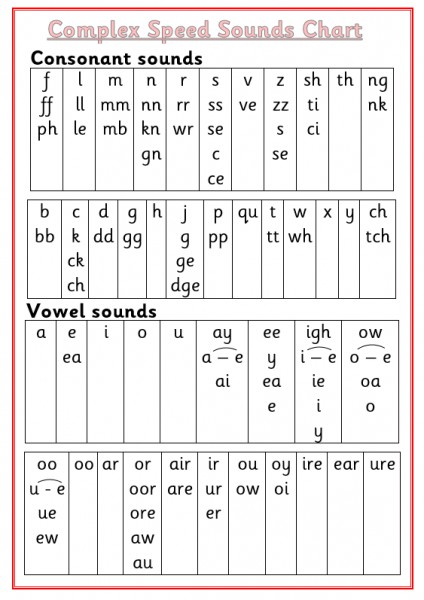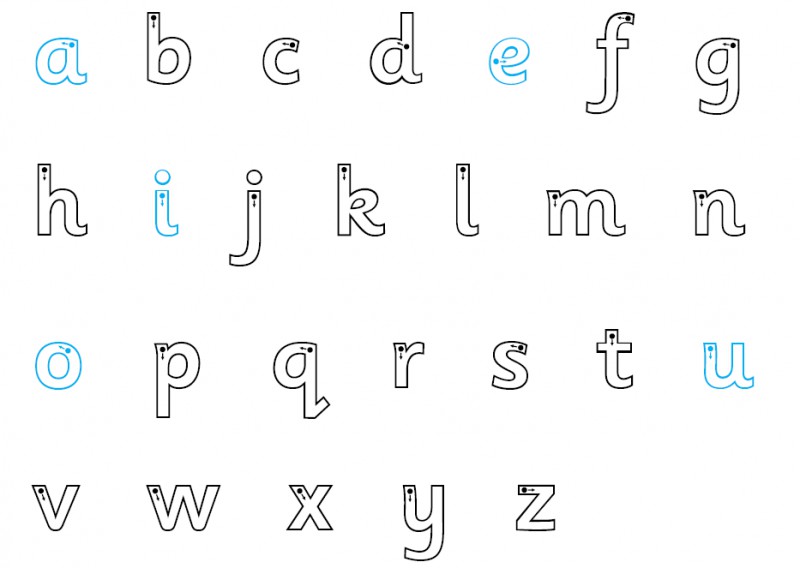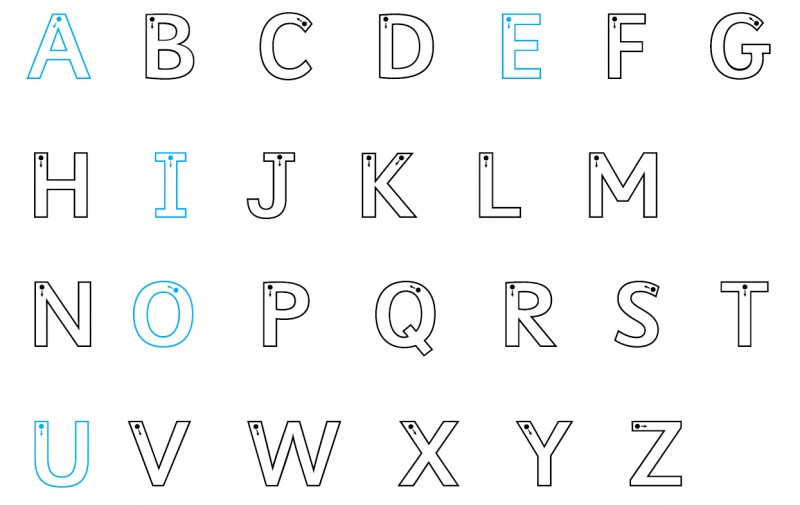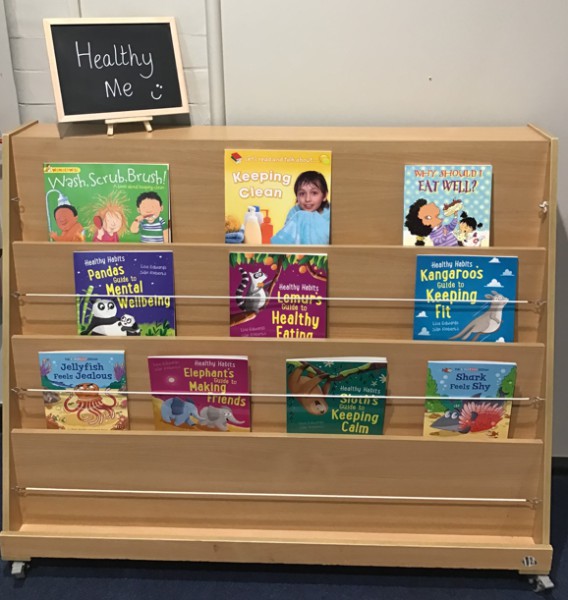Resources
Phonics
Phonics is not the only way to teach reading, but it is recognised as the best way to teach reading for most children. At Robert Miles Infants we follow the Read, Write Inc. (RWI) scheme to teach phonics and guided reading. RWI is taught daily in small groups from when children first join us in reception until year 2, when they demonstrate they can read confidently, fluently and with good comprehension.
Read, Write, Inc. — How does it work?
Children are assessed regularly and grouped according to their reading level. They work in small groups with a teacher or a teaching assistant who has been fully trained in the RWI programme. They learn the sounds that they need to know and practise blending and segmenting skills for reading and writing using ‘Fred Talk’.
At the end of each half term the children will be assessed again to check progress. They will then be re-grouped to ensure that they are being sufficiently challenged and supported. If children are not making expected progress they will access tailored ‘catch-up’ sessions.
Our daily RWI lessons start as shorter sessions for our children in reception and develop into hour long lessons that incorporate elements of guided reading. RWI books are used which match children's phonic knowledge. Within these lessons children will also engage in writing activities to develop Spelling, Punctuation and Grammar (SPAG) skills along with activities that develop reading comprehension.
Children begin to learn the letter sounds (phonemes) and how to blend them together to read when they first start school in reception. Children will learn 44 sounds and the corresponding letter/letter groups using simple picture prompts and a rhyme/saying. First, children need to be able to 'orally blend' (listening to and saying the sounds and blending them into words, not reading them). You can help your child to orally blend by saying out loud the letters "c-a-t" and children should respond by blending the sounds into the word and saying the whole word "cat". Children then learn to read words by blending the letter/sounds that are in the Speed Sound sets. We call this 'Fred Talk'. In phonics we use pure sounds. This means removing the ‘uh’ from the sounds. The children learn to read real and ‘nonsense’ words (sometimes called monster or alien words) by blending sounds together. These sounds can be stretchy sounds (e.g. ay as in the words play) or bouncy sounds (e.g. oo as in the word look).
From reception to Key Stage 1 (Year 1 and 2) children continue to learn the phonemes (letter sounds) including when sounds are represented by 2 letters (digraphs) or 3 letters (trigraphs). In the RWI programme these are known as ‘Special Friends’. As children move through the scheme they will be taught that some sounds can be written in different ways.
Throughout the scheme they are also taught to read and write ‘Common Exception’ or 'Tricky words'that can not be sounded out. These are known as ‘Red Words’ in RWI.
We use the 'Complex Speed Sound Chart' below within our lessons to remind children of the different ways the sounds can be written.
Complex speed sounds chart
To download a copy of the complex speed sounds chart click below.
RWI in action!
Please click on the photos to enlarge, then use the left and right arrow keys to navigate through the gallery.
Read, Write Inc.
Lower case letter formation stencil
To download a copy of this stencil click below.
Lower case letter formation stencil
Upper case letter formation stencil
To download a copy of this stencil please click below.
Upper case letter formation stencil
Reading
Reading unlocks the whole curriculum and future learning depends upon it. We are very passionate about childrens’ literature and creating a life-long love of reading for children.
The first part of a child’s journey towards being a successful reader starts when the child is a baby and is listening to stories and rhymes. This encourages a love of language and stories and develops the child’s vocabulary and understanding of language as they start to become familiar with what words mean and what they look like.
At school children will learn the fundamental skills of reading through the high quality teaching of systematic phonics. Our teachers continue to build on this through daily story time. We place paramount importance on providing opportunities for children to listen to fluent, expressive reading of stories, poems and non-fiction.
We provide purposeful cross-curricular reading where children are given regular opportunities to practise the skills they have learned throughout the day and they are expected to read regularly across the curriculum in a range of contexts and with confidence.
Alongside this we use our reading spine to immerse children in a wide range of rich and varied texts, exposing them to ambitious vocabulary and a rich literature heritage. Children start school with varied exposure to vocabulary and a wide range of oral language skills. We recognise that vocabulary matters to academic success and life chances and therefore we teach ambitious vocabulary systematically through Read, Write, Inc. and across the curriculum. We provide experiences to widen children’s vocabulary at the earliest stages of their lives within a language-rich environment. Each class has a books area to support your child in developing a love for reading.
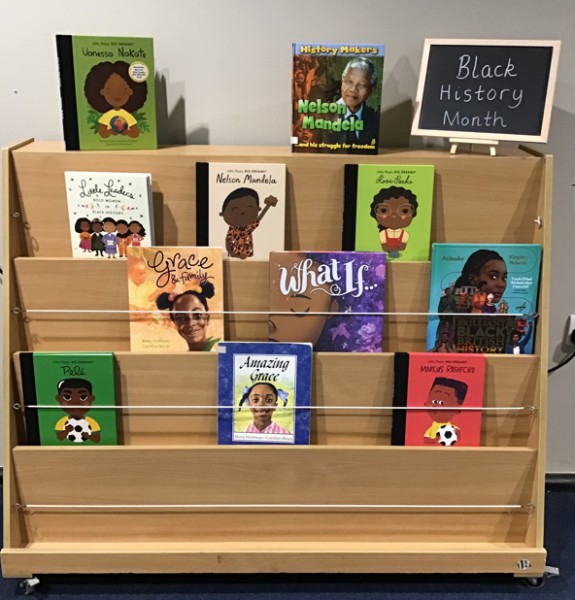
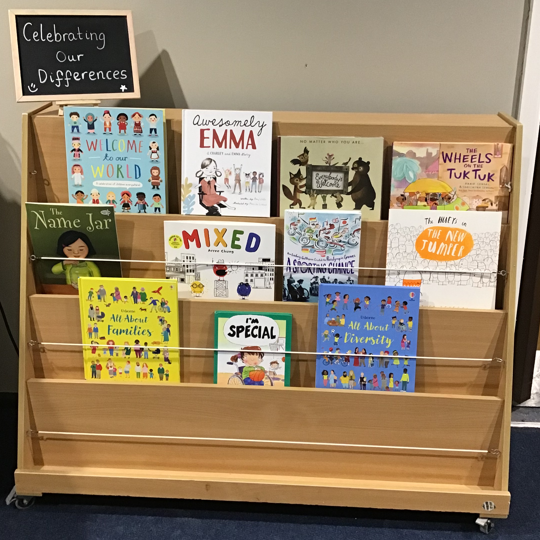
Celebrating Reading
At Robert Miles Infants we value children's efforts and success in reading. We celebrate reading within classes and across the school. Each week the staff choose a 'Reader of the Week' from their class. Children are chosen for a range of reasons including: reading a lot at home, choosing to read for their own pleasure during independent learning time, trying really hard with reading quizzes, using their reading skills well within different lessons or showing enthusiasm towards reading. The children who are chosen get a special certificate and celebration in our Friday celebration assembly. Their photo and the reason why they've been chosen also gets displayed on our 'Reader of the Week' display in our corridor so that all staff, children and visitors can celebrate them.
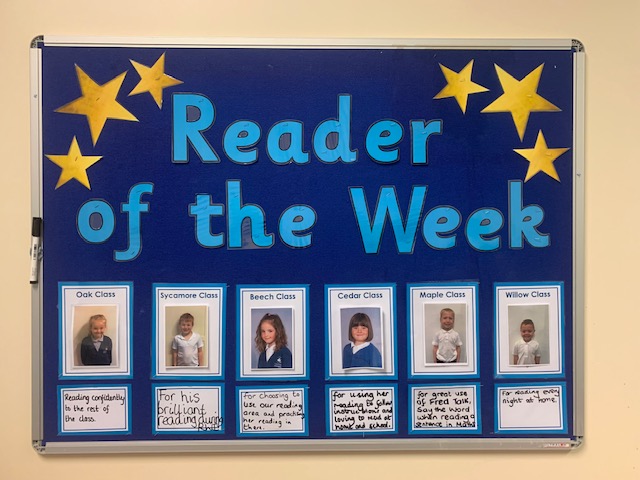
Reading at home
Reading at home is the most valuable experience you can provide your child; reading with them and reading to them. When your child starts RWI lessons (early within the first term of reception) they will bring home three books which each serve a different purpose; one is a family sharing book (this is to encourage family reading time so children can hear fluent, expressive reading); one is a book band book (matched closely to their phonics); one is a Book Bag Book (matched directly to their phonics - this one needs to be read at least three times a week). There is a useful document below called 'Reading at Home Overview' that provides more clear, detailed information on the purpose of the three home reading books and how you can support your child's reading journey at home. We hope you find this useful. Please contact school if you need any additional support or guidance - we are here to help!
Reading Newsletter
Our termly Reading Newsletters enable us to share with you some of the reading learning opportunities which have happened throughout each term.
Reading Newsletter - Autumn 2022
Reading Newsletter - Spring 2023
Some helpful parent information documents:
Reading at Home Overview (A parent guidance for how to support children when reading at home.)
Book Bag Book Information Booklet (A parent guide of how to use the Book Bag Books with your child - please look carefully at the page numbers as they might be out of order due to a printing format.)
Reading VIPERS KS1 (Questions to support children's comprehension when reading.) Taken from 'The Literacy Shed'.
English Vocabulary Glossary (Vocabulary and definitions which we use within our teaching of English.)
Year 1 Common Exception Words (These are words that children should be able to read and spell by the end of year 1)
Year 2 Common Exception Words (These are words that children should be able to read and spell by the end of year 2)
Handwriting Phrases (Children might need help remembering how to form a letter; these 'sayings' might help them remember)
Latest News
- Hello Yellow
Thursday 10th October 2024 (Whole School - 09/10/2024) - Harvest Festival
Thank you to everyone who joined our Harvest celebrations on Wednesday. (Whole School - 04/10/2024) - Open Days for Reception (September 2025)
For parents / carers looking for a Reception school place for their child in September 2025 (Whole School - 18/09/2024)

